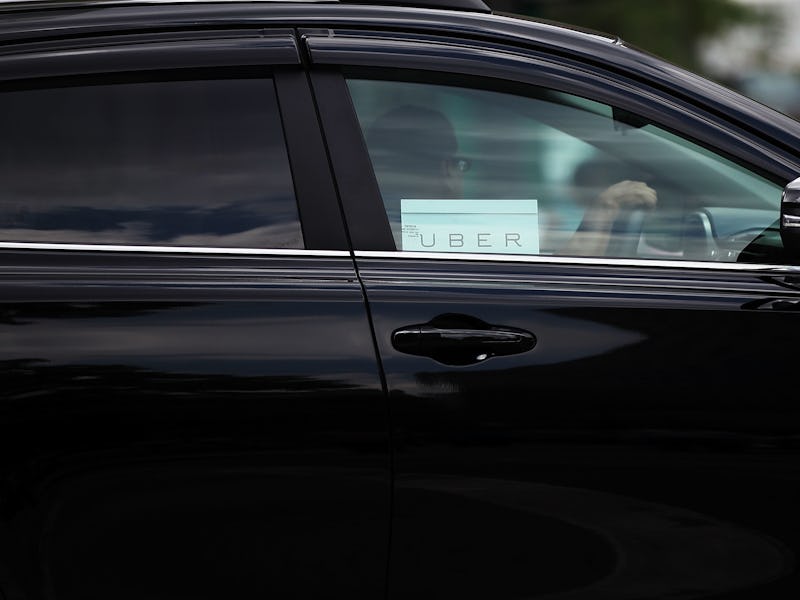Autonomy Could Make the Uber Sedan a Rare Beast
If there's only a camera, would you get in?

They are seemingly everywhere in the American big city: the Toyota Corolla or Prius or Honda Civic or Ford Fusion or Hyundai Sonata. They’re black. They’re often an Uber or Lyft vehicle. And their days of ubiquity might be numbered.
Ford executive John Kwant is doubtful the sedan-as-Uber (let’s pick Uber because it dominates the market) is going to keep its numbers high after the advent of full autonomy. Once there’s no need for a driver who acts as sort of a buffer for passengers sharing a ride, people might think twice about getting in the car. There are “human behavior aspects of shared autonomous vehicles” that need to be considered, Kwant says.
“If no one’s in there, and there’s only a camera, is any of us going to jump in, in the middle of the night, with two or three strangers that we don’t know?”
Kwant explained this scenario from a conference room at the Los Angeles Convention Center on Tuesday ahead of the LA Auto Show. In the press days before the show opens on Friday, there are discussions about autonomy and ride-sharing happening everywhere.
“I just wonder how big that market’s going to be, relative to the others,” Kwant says.
As Ford’s vice president of City Solutions, Kwant is always thinking about the “others.” That might include Chariot — the shuttle startup Ford recently acquired that has no surge pricing — or Ford bicycles, or ride payment platforms and “journey-planning tools.” Ford wants to “connect it all,” Kwant says. The company’s core business is about selling cars, but it’s also directing resources at an emerging transportation services business for fast-growing, densely populated cities where mass transit is overloaded and projected to get even worse. Ford’s addressing problems like air quality, traffic flow, and parking.
Ford acquired Chariot, the micro-transit commuter van startup from San Francisco that expanded to Austin in October.
The idea of system-wide services Ford wants to provide were outlined in a 2011 TED Talk given by Bill Ford, the company’s executive chairman. Titled “A future beyond traffic gridlock,” it offered ideas that Ford has been working on since. Experiments were first, results came next, and the purchase of startups like Chariot is one result.
“There are certain segments that are hyper-competitive right now, like ride-hailing,” he tells Inverse. “How many ride-hailing startups are there in the world?”
Kwant wouldn’t comment on a competitor, but it might be why Ford hasn’t aligned itself with a ride-haling app like its rival General Motors did with Lyft this summer. He instead said Ford is looking for “unique opportunities” both on the supply side to increase ridership capacity. On the demand side, they want to offer people a lot of different ways to travel.